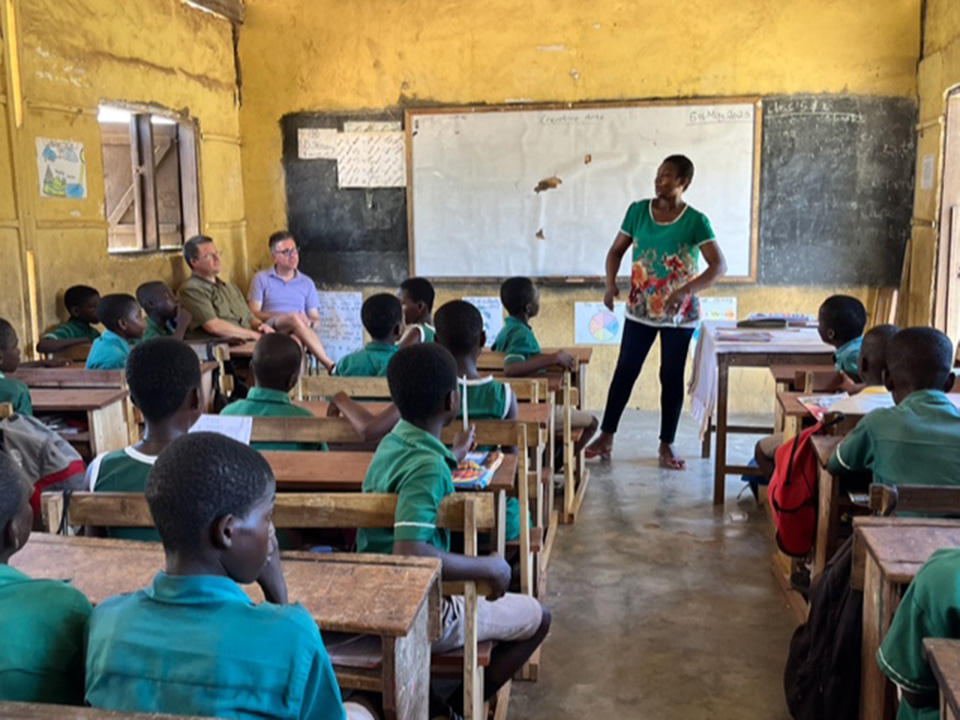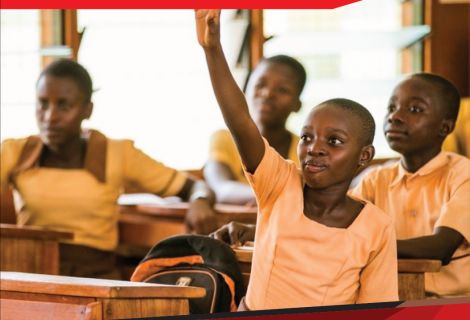Unemployed trainee teachers wait for deployment
A cohort of approximately 15,000 graduates from 46 public Colleges of Education who completed their training in 2023 remain at home, having not been posted by the Ghana Education Service (GES), according to the Concerned Unemployed Teacher Trainees. Their licences for teaching are nearing expiry, yet they report no communication from the government.
What happened?
The trainees say they sat for their licencing exams and passed, and by June 25 the Ministry of Education had told Parliament the recruitment of 50,000 teachers and 10,000 non-teaching staff was forthcoming. The new academic year began in September, and now, in November, the cohort remains unposted. One of their spokespersons, Eshun De-Graft Brown, says the situation is “sad” and “unacceptable.”

Teacher availability is a critical foundation for effective schooling. When trained and licenced teachers are not deployed, the quality of education suffers, and investment in their training yields limited returns. Delays of this magnitude can demotivate the workforce, reduce teaching continuity, and hamper efforts to meet pupil-teacher ratio targets. For Africa more broadly—where teacher shortages are a persistent struggle—such delays undermine progress toward development goals.
Background / Context
The GES in July 2024 introduced a self-posting module for the first batch of degree-holding graduates from public Colleges of Education, allowing applicants to select their preferred region, district, and school via the GES portal. During that period, of about 21,000 applications, nearly 13,000 were deemed qualified. Meanwhile, the broader employment outlook for graduates in Ghana remains challenging, with only about 10 % of university graduates reportedly gaining public-sector jobs annually.

The 2023 batch of Colleges of Education graduates say they have completed all requisite training—including licensure—and yet they are still at home, without any official posting from GES. “We sat for our licensure exams, the results came, and we passed. Even our licences are almost expiring, and it is sad that we have not been in the field,” said De-Graft Brown.
He noted that unlike past years when postings followed soon after training or national service, this year’s cohort is still waiting and has received no updates from the government.
Many of the affected graduates were initially posted to towns under the national service scheme and stayed there in the hope of full employment in September. With deployments still pending, they say they are being evicted by landlords and finding it difficult to secure alternative jobs. “Most of us were posted randomly for national service, and after completing it, we stayed in those towns hoping to be posted in September. Now our landlords are evicting us because we are unemployed,” De-Graft Brown explained.
Additionally, they say private schools are reluctant to hire them because those institutions assume the trainees will leave once government postings come through. “When we approach private schools for teaching jobs, they say they can’t employ us because we might leave once we are posted. So we are stuck,” he added.
Consequences for Education Posting Delivery
The delay is not only a welfare concern for the trainees but also a systemic issue for the education sector. With a full batch of 15,000 qualified graduates unposted, schools across the country continue to face teacher shortages, particularly in remote areas. The unavailability of these teachers comes at a time when the pupil-to-teacher ratio and learning outcomes remain key concerns for the Ministry and the GES.
While an initial recruitment target of 50,000 teachers and 10,000 non-teaching staff was announced by the Minister of Education on June 25, the actual posting of the 2023 cohort has not materialised. The reasons for the delay have not been publicly clarified, raising questions about administrative and budget implementation processes.

In Ghana’s broader education system, the pressure to recruit and deploy trained teachers is acute. According to the Ministry of Education’s 2023 budget estimates, the number of students enrolled in tertiary education continues rising, while the female enrolment proportion stands at around 46 % in recent years. Yet even as enrolment grows, the bottleneck in deploying qualified teachers creates a disconnect between training systems and classroom realities. Across Africa, teacher deployment delays like this one hinder progress toward Sustainable Development Goal 4 (quality education for all).
A regional breakdown of GES postings in 2024 shows significant disparities: for example, the Eastern Region was allocated about 1,600 postings, the Central Region roughly 1,700, while the Savannah Region received fewer than 70. Such uneven distribution exacerbates inequalities and suggests that deployment systems may not be agile enough to respond to trainee surpluses or regional shortages.
As Ghana counts on newly trained teachers to boost the quality and reach of education, the current deployment delay presents a double-whammy: qualified graduates wait idle at home, and schools continue to operate understaffed. Addressing this mismatch between teacher supply and placement is crucial not just for the welfare of the trainees, but for the education system’s capacity to deliver meaningful learning outcomes nationwide.
Read also: EC Reopens Nominations in Under-Subscribed Election Areas — Boosting Local Participation

